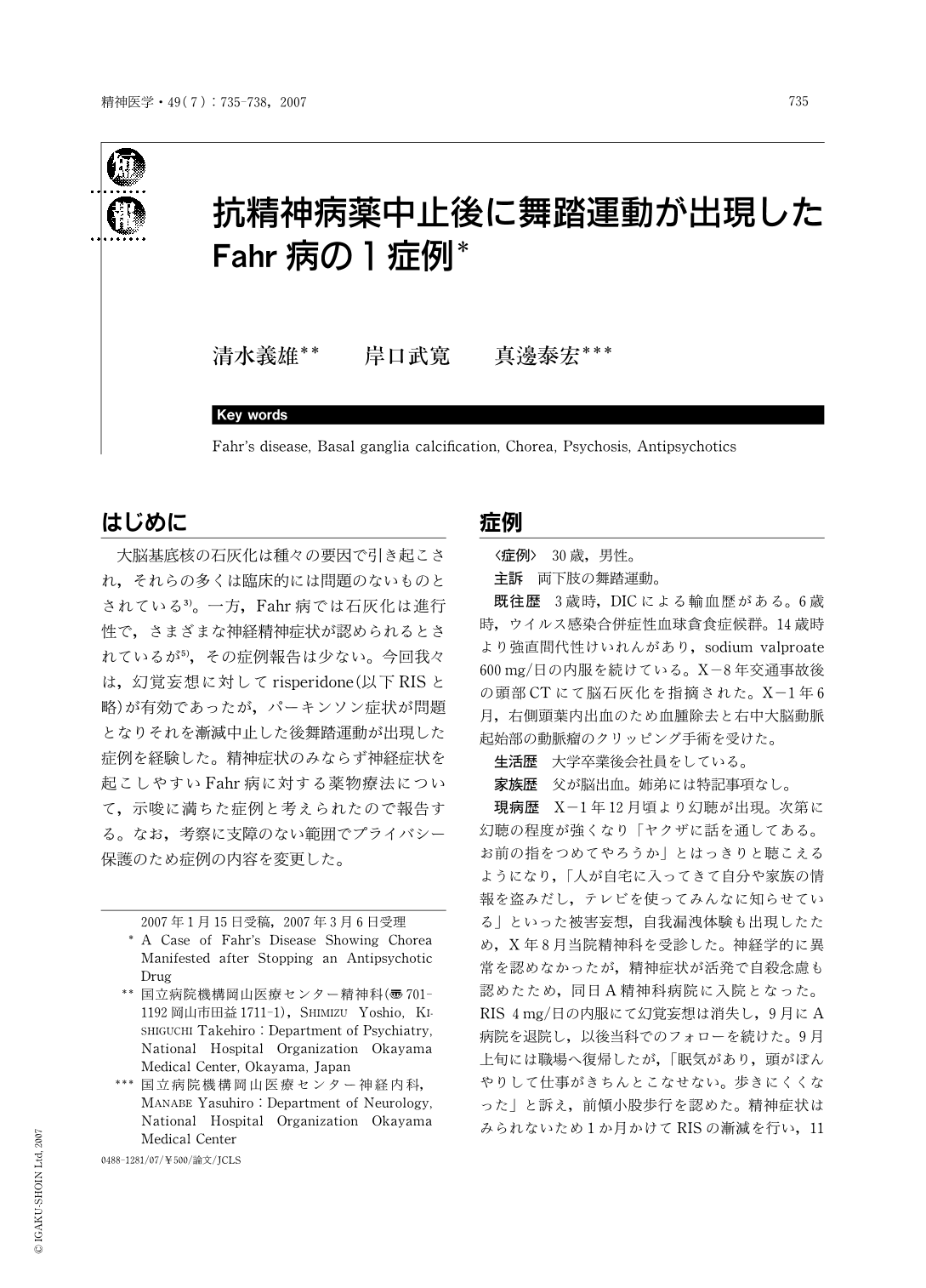Japanese
English
- 有料閲覧
- Abstract 文献概要
- 1ページ目 Look Inside
- 参考文献 Reference
はじめに
大脳基底核の石灰化は種々の要因で引き起こされ,それらの多くは臨床的には問題のないものとされている3)。一方,Fahr病では石灰化は進行性で,さまざまな神経精神症状が認められるとされているが5),その症例報告は少ない。今回我々は,幻覚妄想に対してrisperidone(以下RISと略)が有効であったが,パーキンソン症状が問題となりそれを漸減中止した後舞踏運動が出現した症例を経験した。精神症状のみならず神経症状を起こしやすいFahr病に対する薬物療法について,示唆に満ちた症例と考えられたので報告する。なお,考察に支障のない範囲でプライバシー保護のため症例の内容を変更した。
A-30-year old man consulted a psychiatrist about his auditory hallucinations and paranoid delusion. 4mg of risperidon a day stabilized his psychotic symptoms. After 2 months of risperidon maintenance he complained of an extrapyramidal gait disorder. His risperidon dosage was decreased gradually for 1 month. Two days after stopping risperidon he suddenly manifested chorea on his lower limb. A CT scan showed bilateral symmetric calcifications in the basal ganglia, thalamus, cerebellum and subcortical white matter. The calcification of the putamen had increased compared with a two-year-previous CT scan. Laboratory studies showed no abnormalities of serum calcium, phosphate, PTH, lactic acid, pyruvic acid and cerebrospinal fluid. 75mg of quetiapine a day partially stabilized the chorea and showed no other side effects. Fahr's disease (idiopathic basal ganglia calcification) leads to progressive movement disorders and neuropsychiatric manifestations. Quetiapine can be a useful agent to ameliorate the neuropsychotic symptoms of Fahr's disease.

Copyright © 2007, Igaku-Shoin Ltd. All rights reserved.


